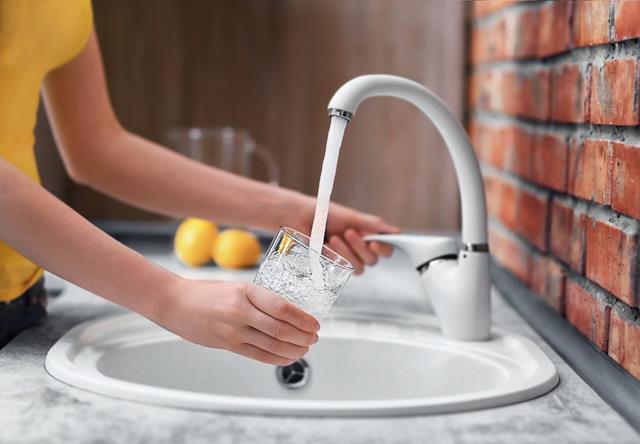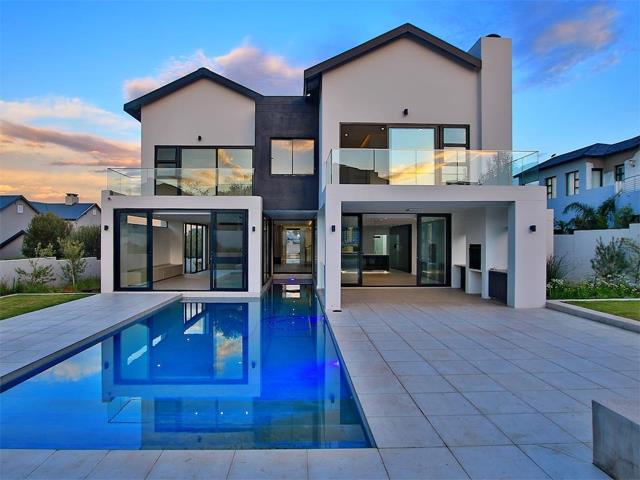Analysing property trends in South Africa based on recent barometers and research documents, there are varied reasons and opinions explaining why certain markets are under pressure and others are thriving.
Read more

Analysing property trends in South Africa based on recent barometers and research documents, there are varied reasons and opinions explaining why certain markets are under pressure and others are thriving.
Topics: Technology, Richard Gray, Harcourts Real Estate
Analysing property trends in South Africa based on recent barometers and research documents there are varied reasons and opinions explaining why certain markets are under pressure and others are thriving. For instance according to the FNB Affordable Housing Insight for the third quarter released in October affordable South African residential properties priced between R250,000 and R500,000 are experiencing a strong third quarter, with some properties sold at 5% above asking price. Whilst 95% of properties in the higher end of the market sell below-asking price, at approximately 10% discount.
Topics: Technology, Richard Gray, Harcourts South Africa, Harcourts Real Estate
As the dust begins to settle after the dire Western Cape drought and the dams are nearing full, we've similarly seen the property market in regions such as Paarl, Stellenbosch and Franschhoek gain ground. It was undoubtedly a tough period the past 18 months with many investors hesitant to invest in the Western Cape market due to water restrictions, tough economic landscape and the political issues surrounding land.
Topics: Selling, Harcourts South Africa, Property Markets, Harcourts Real Estate, Harcourts Winelands
According to the latest FNB Property Barometer Survey data shows that “Downscaling because of life stage” dominates as the most prominent reason for selling a property in SA, with such sales accounting for 23% of all sales in 2Q19, the same as in 1Q19. However, what is most concerning is that “Downscaling due to financial pressure” has become increasingly prominent in the past year; the estimated proportion of such sales jumped to 19% in 2Q19 from 16% in 1Q19.
Topics: Selling, Richard Gray, Financial Advice, Harcourts Real Estate
Renting is the smart financial choice for many consumers, but a ‘difficult’ landlord can easily make it feel like the wrong choice, and cause tenants to leave as soon as they possibly can.

On the other hand, landlords who are able to establish a good working relationship with their tenants will have much easier time when it comes to organising any repairs necessary and retaining those tenants or showing the property to prospective new tenants, says Gerhard Kotzé, MD of the RealNet estate agency group.
And this applies whether you manage your rental property yourself or through a managing agent, he says, so here are the five top tips for becoming the landlord that tenants love to rent from:
1. Be transparent and honest
Everyone expects honesty when it comes to dealing with tenants’ deposits and rental payments, but you and/or your agent should also be transparent when answering prospective tenants’ questions about things like noisy neighbours, traffic in the area, cell phone coverage and the availability of public transport.
2. Make your tenants feel welcome
It’s definitely worth having a meal or a gift delivered to your tenants on the day they move in and taking the time to provide them with some useful information about their new area.
“Once they know where the nearest shop, bank, gym, bus stop and school is, they will feel much more at home and be able to imagine themselves settling down in your property for a long time,” says Kotzé.
3. Provide clear lines of communication
You obviously don’t want your tenants calling you or your agent at all hours of the day or night for every little thing, but you don’t want them to feel cut off either.
“So when they move in, give them the right number to call during business hours, and better still, an email address where they can reach you or your agent. This will have the added advantage of helping to keep a written record of all communications with your tenant for future reference,” he says.
4. Be quick to respond
As a landlord you no doubt expect your tenant to be prompt when it comes to paying the rent, so you and/or your agent need to extend the same courtesy to your tenant when it comes to dealing with their concerns about urgent repair, noise or security issues.
“Of course, they should only call you or your agent during business hours unless it is a real emergency, but when they do, the matter should be dealt with as fast as possible. And if an outside contractor is required to fix any sort of damage, you need to monitor progress to see that the work is completed properly and on time,” says Kotzé.
5. Be a bit flexible
While it may be written into the lease that rent is due by no later than noon on the first of every month, your tenant should be able to approach you for a little leeway in the event of an emergency.
No one is suggesting that you tolerate repetitive late payment, but good tenants who usually pay on time and in full will appreciate some kindness when they have a genuine problem - and are most likely to return the favour when it comes to renewing their lease or accepting a rent increase.
Topics: Property Management, Landlords, Harcourts Real Estate
With parts of South Africa being ravaged by heavy rain and floods, leading to loss of life and significant damage to properties and vehicles, Auto & General Insurance is urging South Africans to be vigilant and adopt a proactive mindset to avoid disaster.

“What starts out as a couple of drops of rain can very rapidly develop into a very serious and life-threatening situation. South Africans are urged to take practical steps to better protect themselves and to have proper emergency plans in place,” says Ricardo Coetzee, Head of Auto & General Insurance.
Auto & General offers the following tips:
General rules to remember
1. General and regular home maintenance, like checking structures around your house for weak spots, clearing debris from gutters, cutting away dead trees and branches and ensuring adequate drainage of water, is essential and will significantly reduce your risk. Reinforcing vital structures if you live in a rain/flood-prone area is also a good idea.
2. Good vehicle maintenance - make sure your vehicle is in tip-top shape and won’t let you down, even when the proverbial ‘high water’ comes.
3. If you notice that there’s insufficient drainage, or a possible safety hazard due to cracking structures and roads, landslides, rock falls, etc., in a public area, alert the authorities immediately.
4. Always keep an eye on the weather forecast, look out for warnings of heavy rains and avoid danger areas - like roads where drainage is poor - wherever possible.
5. Make sure to have all emergency numbers, including that if your insurer, saved on your phone, or memorised. Make sure that your whole family is thoroughly briefed on what to do and who to call in the event of an emergency.
Heavy rain
6. Make sure that your outdoor furniture and accessories are safely stored or firmly secured and that all gates and doors that need to be locked, are.
7. Heavy rains are often associated with lightning. The power surge of a lightning strike can easily overload most appliances and devices. It’s best to unplug these before the storm arrives.
8. Where possible, park your car under cover and delay travelling until the storm has subsided.
9. If you are caught in a heavy storm and you feel it’s not safe to drive, look for cover, pull over or seek shelter. This could include a covered car park, a petrol station or under a bridge. However, take extreme care when pulling over - put on your hazard lights, and don’t risk your safety or the safety of others by dashing madly for cover. Stay in your car and only leave the safety of your sheltered spot when the storm has passed.
10. Don’t park under trees as there is a danger of falling branches and debris.
Floods
11. It is sensible to purchase your own supply of sandbags, especially if you’re in a flood-prone area, like one close to a river or on a hillside. These can be placed against doorways and low-level vents in times of flooding to help minimise the amount of water that enters your home.
12. Move high-value items to the highest possible floor or shelf if a flood threatens.
13. Turn off electricity and gas supplies if flooding occurs to limit the risk of electrical shock or a fire.
14. If you see warning signs like water seeping through the door or water eating away at your home’s walls and foundations, it’s best to head for higher ground immediately. Do not wait for it to become a life-threatening crisis.
15. Motorists should not attempt to drive in flood conditions. Remember that just 15cm of moving water can knock you off your feet and water just 60cm deep can sweep a vehicle away. You also run the risk of flooding your vehicle’s air intake, which will stall the engine. Generally, if the water is deeper than the bottom of your doors or the bottom third of your wheels, it is not advisable to drive through it.
16. Flash flooding often occurs when rivers flow over low-lying bridges. Avoid crossing bridges or roads next to rivers during heavy rains. If you do get stuck on a flooded road, it’s best to switch to the lowest possible gear and proceed slowly.
17. If you approach a flooded spot at speed, it is advisable to take your foot off the accelerator and let your speed drop gradually. Never use the brakes suddenly because this may cause the car to skid or aquaplane.
18. If your vehicle gets stuck during flooding, or starts to get washed away, rather abandon the vehicle and climb to higher ground. It is dangerous to try and drive out of the water to safety.
“It’s wise to remember that your life and that of your loved ones is worth more than any house or car, so don’t risk it at any cost,” says Coetzee.
“Also ensure that, in the event that disaster does strike, you have adequate insurance in place to cover the complete repair or replacement cost of your house, vehicle and other possessions.”
Topics: Harcourts South Africa, Safety, Harcourts Real Estate, Rain and Floods
Eskom has issued steps consumers can take to save electricity as the colder weather grips South Africa.

“During the colder months, space heating can be responsible for up to 8% of an average household’s electricity usage. The current constrained electricity network calls for smart electricity usage to help keep the warmth inside and the cold outside,” said the power utility last Wednesday.
Last week the power utility started implementing its ‘Use electricity smartly’ campaign, which aims to reduce electricity the shortage so as to minimise the risk of load shedding.
The power utility said insulated and draught-proofed rooms require 51% less energy to heat.
Eskom has the following tips for the winter period:
1. Use foam tape to seal windows and doors if they do not close properly - in winter, draughts can account for up to 25% of heat loss.
2. Hang curtains to reduce heat transfer.
3. Lay 'door snakes' to stop cold air from entering - aluminium skirts with rubber seals on the outside of doors are also highly effective.
4. Seal cavities in and between bricks with a polyurethane sealant.
5. Seal the chimney if you have one – the best way is to have a damper installed when the chimney is not in use; if not utilised at all, seal it at the top and bottom.
6. Install fire-retardant ceiling insulation – with approximately 40% of heat lost through the roof, ceiling insulation makes your home up to 5% warmer in winter.
7. Only heat the room you are occupying, and use the correct type of heater when you feel the need for extra warmth.
8. A thermostat-controlled fan heater is ideal to quickly heat a room of 3 x 3 x 2.5 metres for one hour.
9. A thermostat-controlled oil heater no bigger than 2 000W (watt) is the best choice to heat the same room for three hours.
10. A thermostat-controlled heater no bigger than 1 000W (watt) is the most energy efficient option to heat it for eight hours.
11. Most gas heaters generate a great amount of heat and do not require electricity at all.

The power utility has in recent weeks implemented load shedding as a result of generation capacity.
“Eskom is currently faced with challenges at its power stations, which has led to the need for load shedding over the past few months.
“If consumers can assist us by using electricity smartly, it would help to reduce the need for load shedding, which is a measure used to balance the supply and demand of electricity,” says Eskom acting Group Executive for generation, Andrew Etzinger. – SAnews.gov.za
Topics: Harcourts South Africa, Advice, Electricity Tariffs, Winter Blues, Harcourts Real Estate
You already know that we live in a water-stressed country, receiving an annual rainfall of 492mm, while the rest of the earth receives 985mm.

This is according to Marcus Thulsidas, Director: Business Development, Utility Systems, who says in addition, the WWF (World Wide Fund for Nature) cautions that 98% of South Africa’s water has already been allocated to users, leaving little surplus water to cater for a growing population and increasing demand.
In this context, could it be that prepaid water - like prepaid electricity - is the answer to more sustainable water consumption and management?
“Well, we at Utility Systems believe it is,” says Thulsidas says, and there are five important things that South Africans need to know about installing prepaid water meters:
1. What is ‘prepaid water’?
Prepaid water means that the consumer purchases water credit in the form of a prepaid water token. When entered into the user interface unit (located in the consumer’s home), the token instructs the water management device to allow a certain amount of water through the meter before closing.
Consumers can track usage, load credit remotely, and decrease the possibility of bill shock due to leakages or incorrect monitoring.
A prepaid water meter can also be used to limit water flowing to a particular area. This helps municipalities and property owners to control the amount of water used at certain outputs and prevents wastage in low-income households that can’t afford to pay for excess use of this basic need.
They can make payment in smaller, frequent increments. This prevents their falling into debt, which can compound in a post-paid arrangement.
2. Who can access it?
This is completely dependent on the municipality. So, even if you’re feeling inspired to install a smart water management device to enable prepaid water, you may not be able to - based on where you live or work.
That being said, most municipalities are beginning to embrace prepaid water management technology, so it may just be a waiting game. To find out your eligibility for prepaid water, it’s wise to approach your municipality and ask.
If you have a garden cottage, however, you can add an additional meter and smart water management device to the building to ensure that your tenants don’t rack up huge bills in your name - and then refuse to pay, or leave.
3. How does it affect rental properties and bodies corporate?
The implications for rental properties and bodies corporate are significant.
Prepaid metering reduces admin to a minimum, while removing the risk and frustration of late or non-payment of water bills. This is why housing estates are swiftly moving to prepaid water, as they did with prepaid electricity.
Gone are the days of splitting the entire estate’s water bill by the number of units. Prepaid metering means that users pay for their consumption only.
4. What’s in it for municipalities?
Prepaid systems are cost-effective solutions to sustainable water management in that they have a low cost of acquisition and, by curbing water usage, capital recovery is possible within months.
The systems are also able to distribute water equally, based on free water quotas, water balancing and fluctuating demand.
Aside from their ability to alert municipalities to leaks, prepaid water meters also drastically reduce government’s admin costs. This is because municipalities don’t need to chase bad debts or budget for legal fees on unpaid accounts. Public sector cash flow is immediately improved.
Collecting data from prepaid meters is also more efficient than the manual collection required for post-paid meters. A radio link receiver can be fixed, vehicle-mounted, or carried by municipality personnel.
5. Is prepaid water cheaper?
No - this is a myth. Prepaid and post-paid water cost exactly the same. It is illegal to sell municipal water above the municipal tariff rate declared. That being said, prepaid water gives consumers the opportunity to monitor their consumption and react immediately to possible leaks.
Finally
“The bottom line? Even the simplest smart water management device can provide the tools to track and control water usage. Prepaid water meters are smart tools with the potential to revolutionise water conservation efforts and revenue management worldwide. But it’ll be a while before every South African household is able to benefit from this enormous potential,” says Thulsidas.
Topics: Advice, Harcourts Real Estate, Prepaid Water
In most cases when a person buys a property, he or she will have to apply for a home loan, and this would be written into the offer to purchase (OTP) as a suspensive condition, giving a certain timeframe for the bond to be obtained by the bank and accepted by the buyer.
Topics: Agent Life, Home Loan Advice, Harcourts Real Estate
From a global perspective auctions have for long been synonymous with the property market, however the local property industry has only really embraced this activity in the past few years. And now it is one of the fastest growing sections in our industry.

“The modern business environment has certainly played a major part in perpetuating the increased demand for auctions. We’re finding many consumers are becoming more accustomed to that style of purchase behaviour due to the rapid rise of local and international auction-based retail sites,” explains Harcourts South Africa CEO Richard Gray.
Rudo Kirsten, Auctioneer at Harcourts Midrand, admits that they’ve experienced an increase in queries from sellers regarding their auction options. “We are seeing quite a lot of new interested sellers and buyers entering the ever-expanding Midrand market.”
The advantage for many sellers and buyers is that auctions provide them with an opportunity to attain value, and that is often the priority, he says.
Midrand offers buyers a wide variety of property options, from beautiful first-time buyer apartments to large family homes, farms on the outskirts and great ROI commercial properties.
The other advantage of Midrand, he says, is that it is centrally located and very close to the Gautrain line which makes it convenient for anyone traveling in and around Gauteng.
Kirsten says convenience and time can often be a factor for a seller and a property auction, when implemented effectively and professionally, can be a great method to achieve a fair market value within an allocated time.
By restricting the time for the sale of a property, as is the case with auctions, there is a sense of urgency among interested buyers and often the agency will prioritise your auction property for the same reason.
“At Harcourts, we have developed world-class auction solutions that have been implemented by our global and local offices for many years. We have auction marketing down to a fine art and consider ourselves specialists in this field,” says Gray.
Gray adds that the trend will continue to increase and Harcourts predicts that auctions is going to be one of the primary selling and buying methods of property in Midrand in the coming years.
Topics: Auctions, Harcourts South Africa, Harcourts Real Estate, Harcourts Midrand
© 2019 Harcourts International Ltd, Inc. All rights reserved.
Privacy Policy |
Cookie Policy |
Disclaimer
This website is best viewed with Edge, Firefox, Safari or Chrome